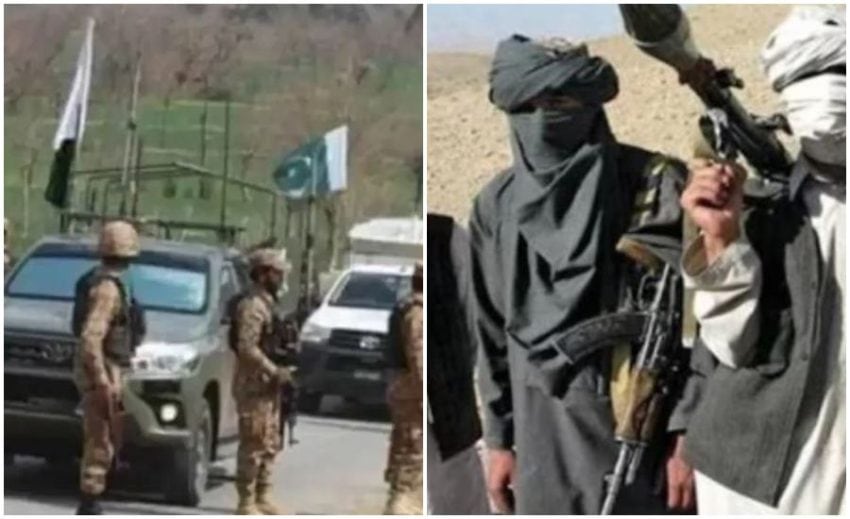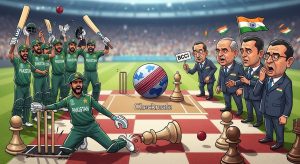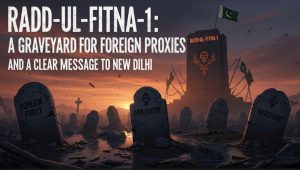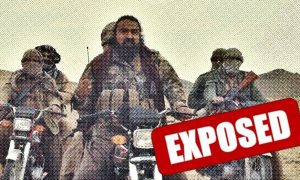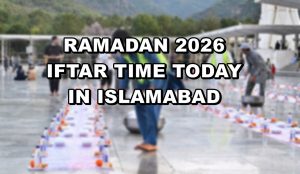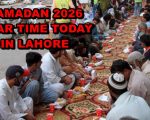Every time a bomb shakes a marketplace. Every time gunfire shatters a schoolyard. The same question haunts the nation: who gave these men the right to kill in the name of God? The answer is clear. Moral and constitutional. No one did. In Islam, as in law, the authority to declare war, to declare jihad, belongs to the state alone. Not to a self-appointed guardian of faith. Not to anyone who claims God whispers in their ears. This isn’t a technical debate. It is the line between order and anarchy. Between faith as mercy and faith as a weapon.
The reasoning is simple. Power only works when it is held by institutions bound by law, ethics, and accountability. Hand it to extremists, to factions hiding behind sermons and slogans, and the result is not courage but chaos. Bloodshed. Streets empty. Lives broken. And the moral fabric of Islam, ripped apart.
Pakistan knows this truth in its bones. Decades of violence have left scars that no policy can erase. Markets lie in ruins. Schools sit silent. Neighborhoods echo with absence. Faith has been twisted. Lives stolen. Hope tested in the cruelest ways. Those who drape bullets in religion are no defenders of Islam. They are betrayers. Enemies of humanity. Their so-called jihad is not devotion but fitna — the rebellion the Prophet (PBUH) warned against. A poison that spreads only death and division.
It was in this shadow of grief that Paigham-e-Pakistan rose — a voice above the noise. Hundreds of scholars, from every school of thought, spoke with one voice: Islam does not allow individuals or groups to wage war, enforce beliefs, or impose Sharia through violence. Any such act is not just unlawful. It is haram. More than a statement against terrorism, it was a reaffirmation of Pakistan’s moral identity. Reform comes through knowledge, law, and justice. Not bullets. Not blood.
The fight against terrorism is not just about operations or intelligence. It is a battle of hearts and minds. The Khawarij of today wear suits, use smartphones, and hide among us. But their spirit is the same: arrogant. Angry. Certain that fury equals faith. Pakistan’s struggle is not only for borders. Not only for peace. It is for the soul of Islam itself.
Can the nation reclaim that soul? Can its mosques, classrooms, and media spaces teach reflection instead of rage? These are not rhetorical questions. They are tests. For parents. Teachers. Scholars. Leaders. If young minds are poisoned by the ignorant and the violent, no military operation can fix it. But if education, fairness, and moral clarity prevail, terrorism will collapse from within, starved of the ignorance that fuels it.
The principle is non-negotiable. The right to declare jihad belongs only to the state. To challenge it is not courage. It is rebellion. Against law. Against Sharia. Against humanity. Those who seize that right do not defend Islam. They dismantle peace itself.
There is a quiet fierceness in Pakistan now. Worn by grief. Strengthened by resolve. The country will not bow to fitna or the modern Khawarij. It will stand. Sweep its streets clean of the poison that breeds murder. Expose those who hide cruelty behind piety. This is not bravado. It is steady, weary determination. Mothers who have buried sons. Teachers keeping classrooms open. Soldiers patrolling neighborhoods. They demand nothing less.
The road is long. Painful, yes. But the direction is clear. True jihad, if it must be called that, is not a rush to the gun. It is a return to conscience. Restraint. Truth. A struggle only a lawful, accountable state can lead.

